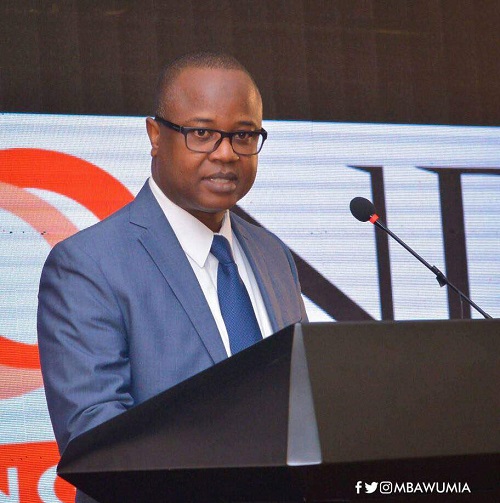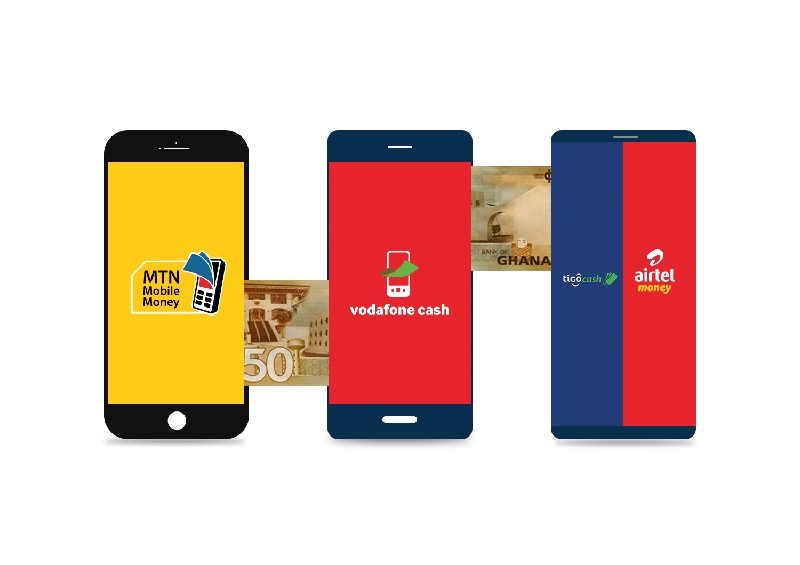The Bank of Ghana (BoG) has urged telecom operators to consider the cost involved in the transaction of business on the mobile money platform.
It’s been years since the rollout of the mobile money service and even though revenue margins have doubled, some concerns have been raised over the cost build up in the transfer of cash.
Speaking at MTN’s Stakeholders Meeting on Mobile Money, First Deputy Governor of the Bank of Ghana, Dr Maxwell Opoku-Afari, argued that competitive pricing of mobile money services will deepen financial inclusion.
ALSO READ: BoG to announce new minimum capital requirement for Mobile Money
“The success of mobile money transactions in advancing financial inclusion cannot be overemphasized, but there is still scope for further expansion and we need to focus on areas such as pricing of digital financial services to promote competitive practices to foster increased usage. Broadly, market players are seeking to lower costs and increase access channels to make digital financial services affordable to the general public,” he stated.
According to him; “ there are enormous opportunities for banks to leverage on the over 30 million existing mobile money accounts to expand the scope and appeal of electronic payments, offer more innovative payment products that provide convenience, simplicity and speed at minimal transaction costs, as well as offer efficient means of delivering financial services even in the remote areas.
This will further enhance financial inclusiveness, promote the country’s cash-lite agenda, and most importantly, deepen financial intermediation.”
Taking his turn at the MTN stakeholder’s meeting, Head of Mobile Money Services, Eli Hini, explained the cost components involved mobile money.
He cited the “demands of agents” and the “capital investments” in the mobile money service as some crucial considerations informing decisions on the cost of the transaction.
Meanwhile, MD of Fidelity Bank, Julian Opuni urged banks to take advantage of recent trends in financial technology so as to partner them to deepen financial technology
The aim of MTN’s Stakeholders Meeting on Mobile Money was to assess its impact on financial inclusion in Ghana.
Mobile money technology has evolved and gained public acceptance, and in almost a decade, contributed significantly towards financial inclusion in the country.
For instance, the number of mobile money accounts has reached 32.6 million in December 2018 compared with 3.8 million in December 2012. Total float balances as at December 2012 was GH₵19.6 million compared with GH₵2.6 billion recorded in December 2018
Currently, the mobile money wallet is used for the domestic transfer of funds, payment of goods and services, utility bill payments, salary payments, micro-credit and micro-insurance services.
ALSO READ: Ghana tipped to be the fastest growing mobile money market in Africa
In May 2018, the payment and settlements system was firmed up with the successful implementation of mobile money interoperability. With this in place, banks can now leverage on the existing 396,599 mobile money agents to reach out to the unbanked.
Also, there are enormous opportunities for banks to leverage on the over 30 million existing mobile money accounts to expand the scope and appeal of electronic payments, offer more innovative payment products that provide convenience, simplicity and speed at minimal transaction costs, as well as offer efficient means of delivering financial services even in the remote areas.
Credit: Joy Business









